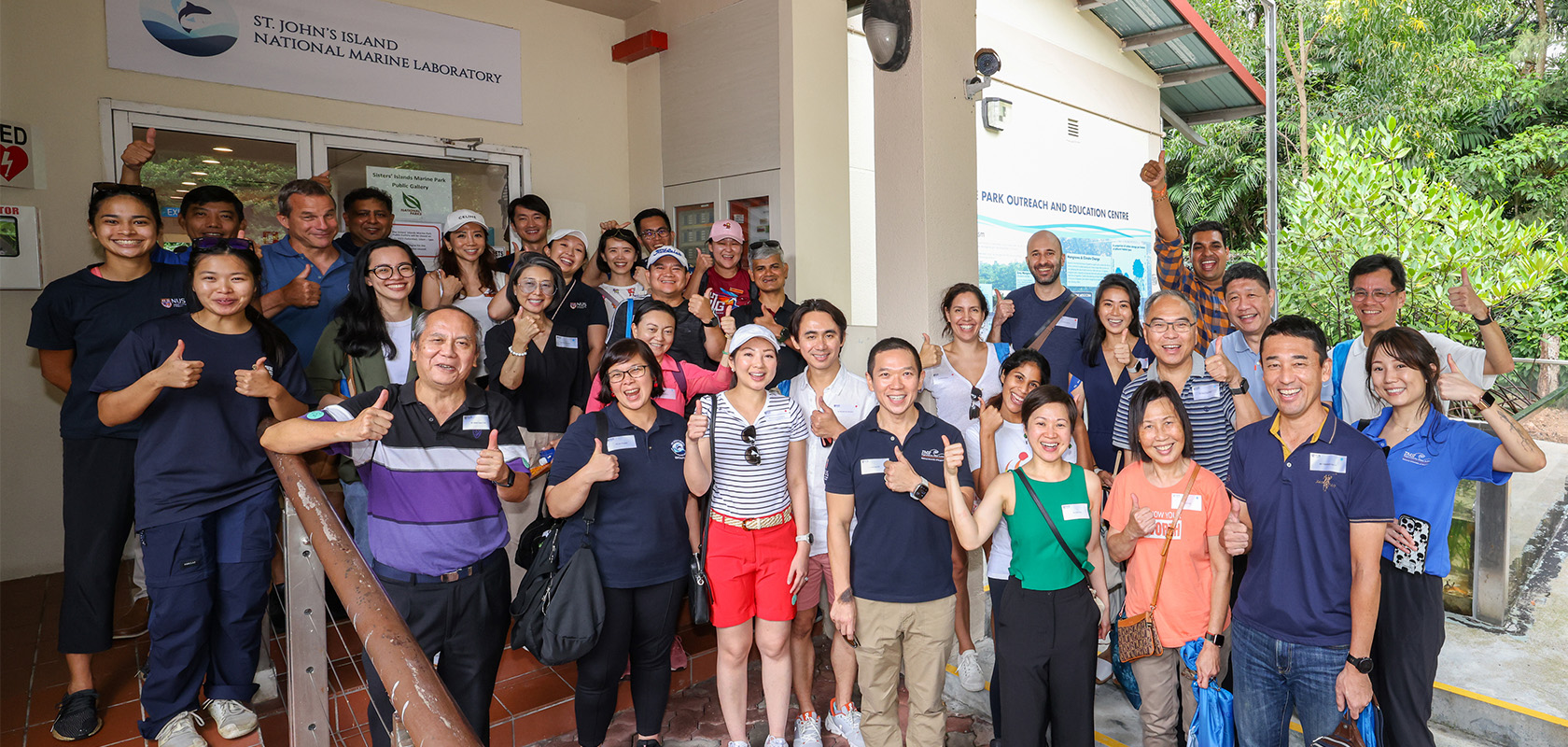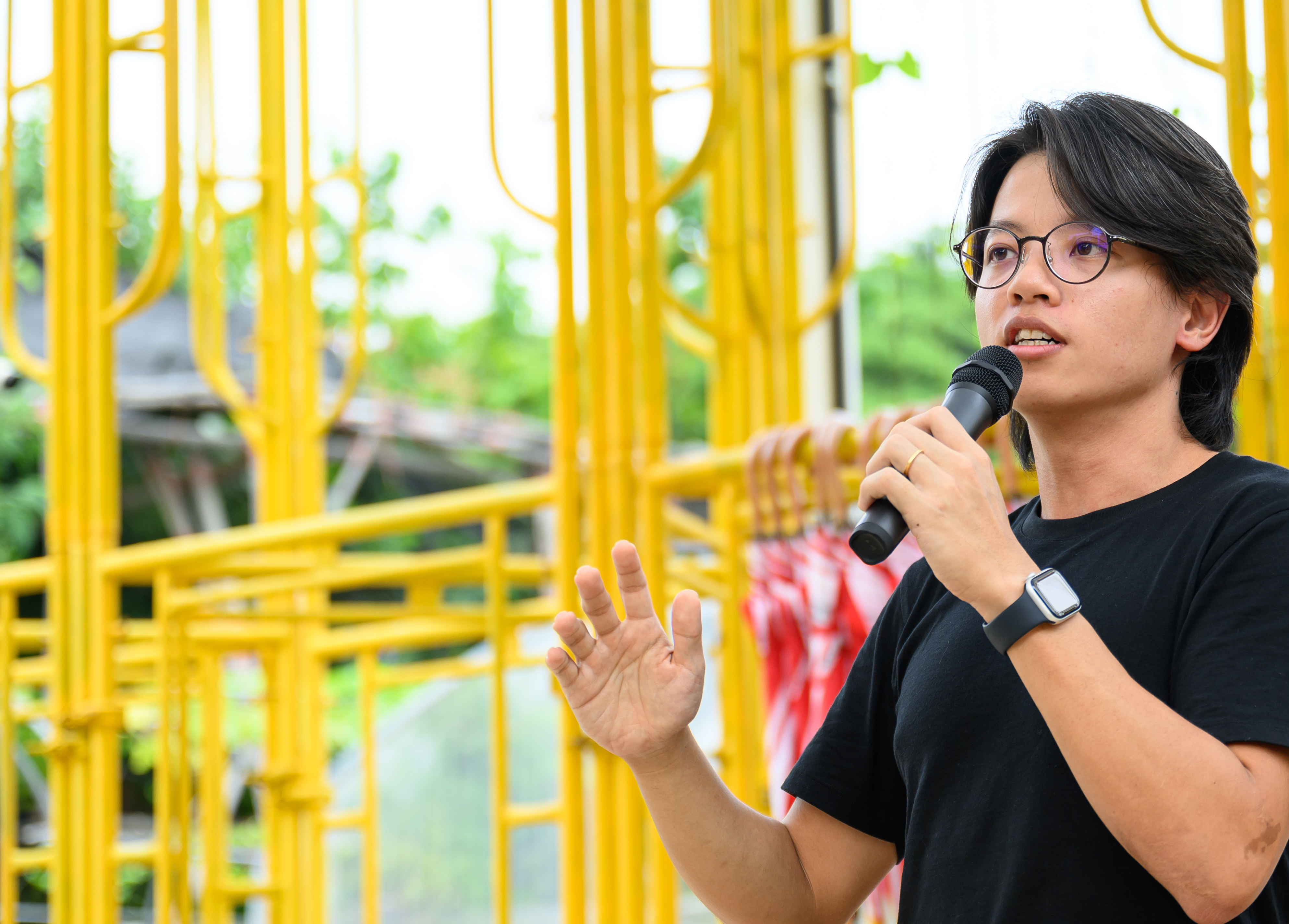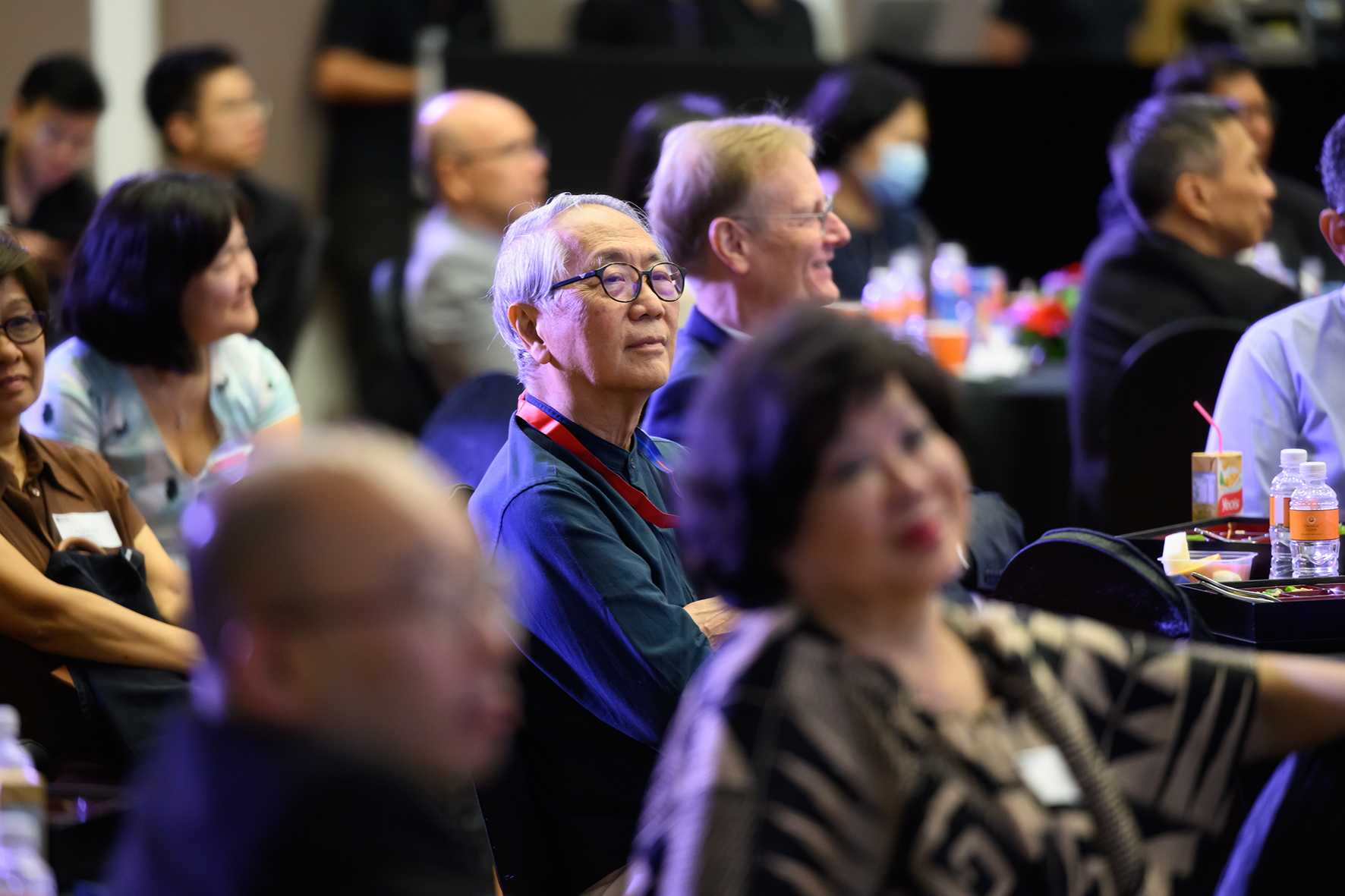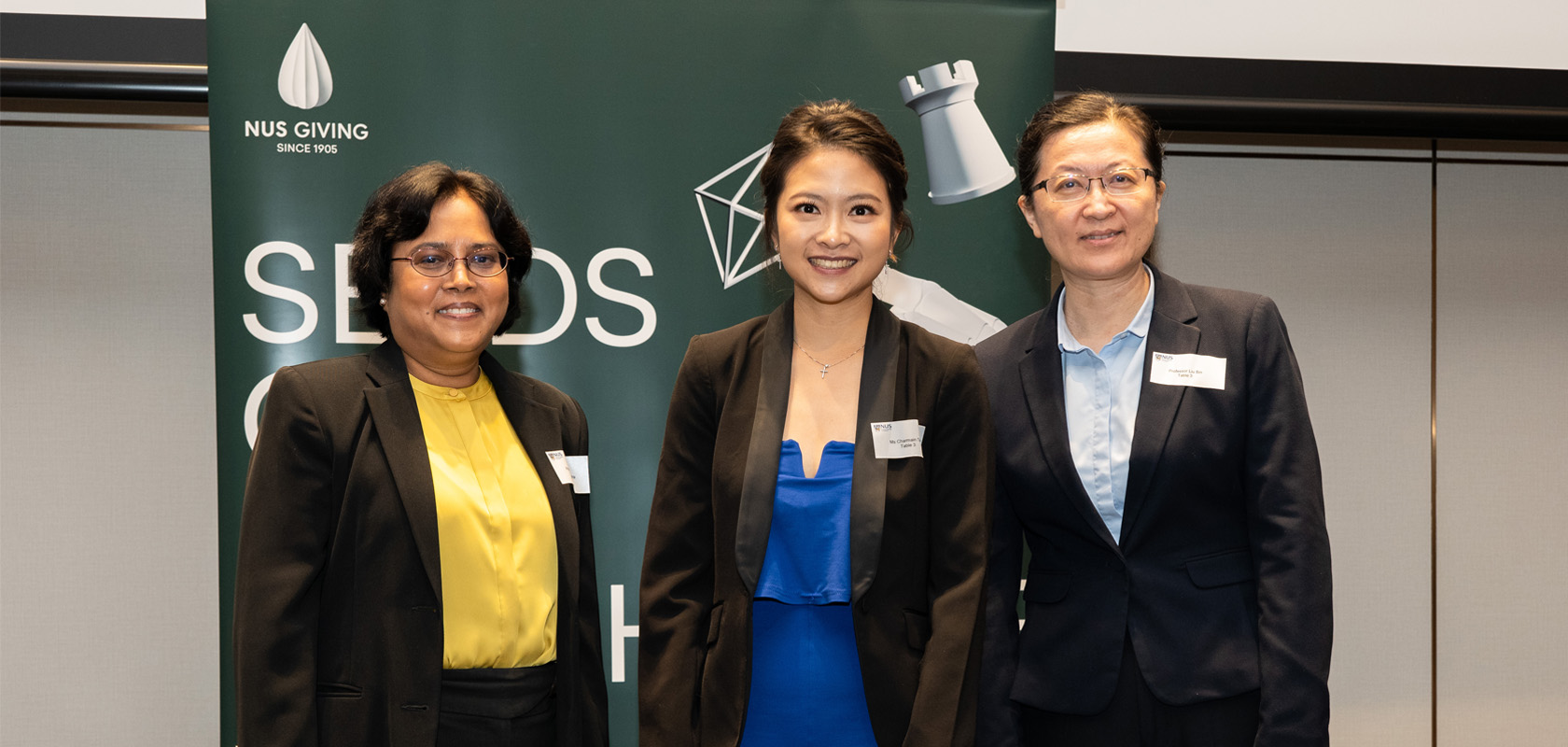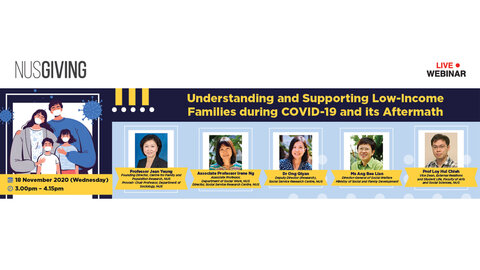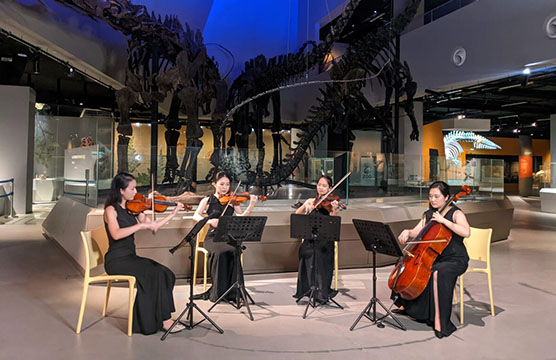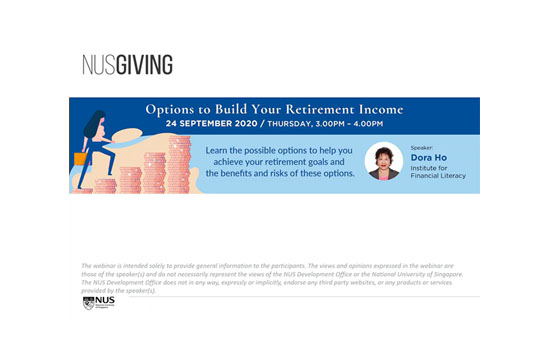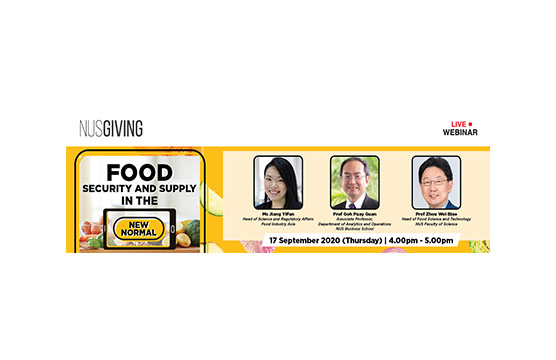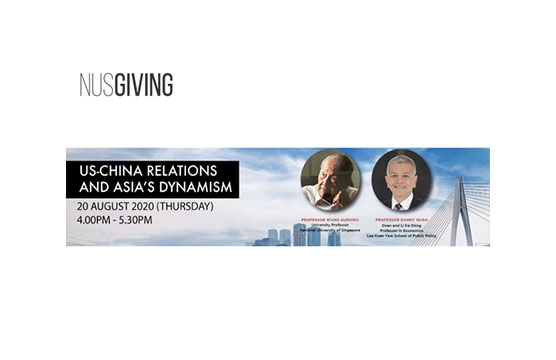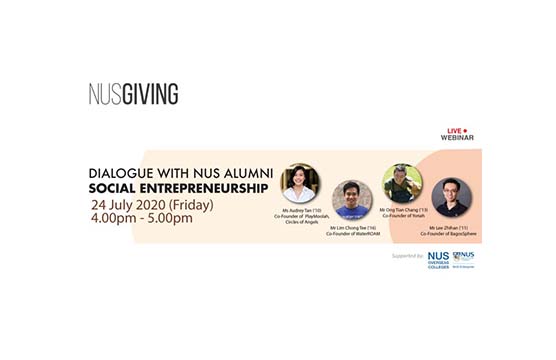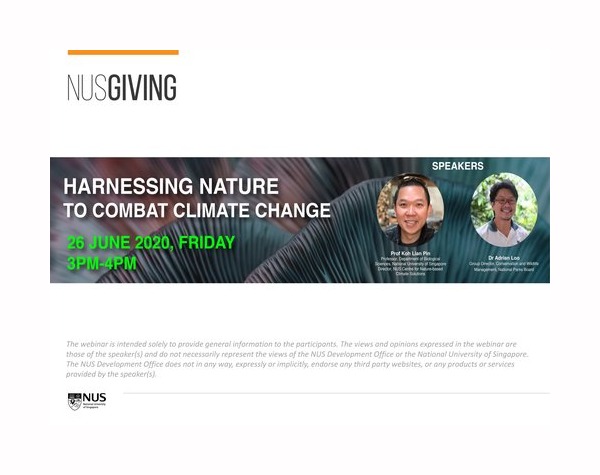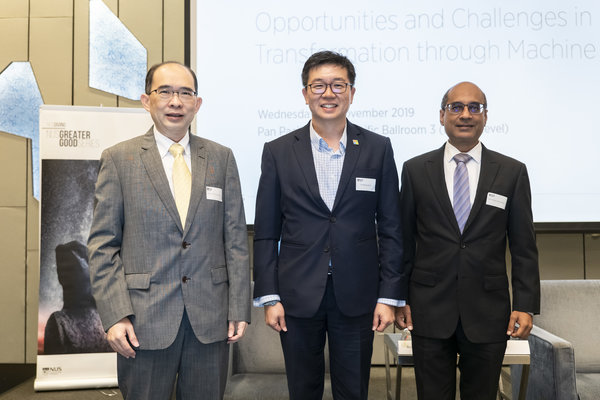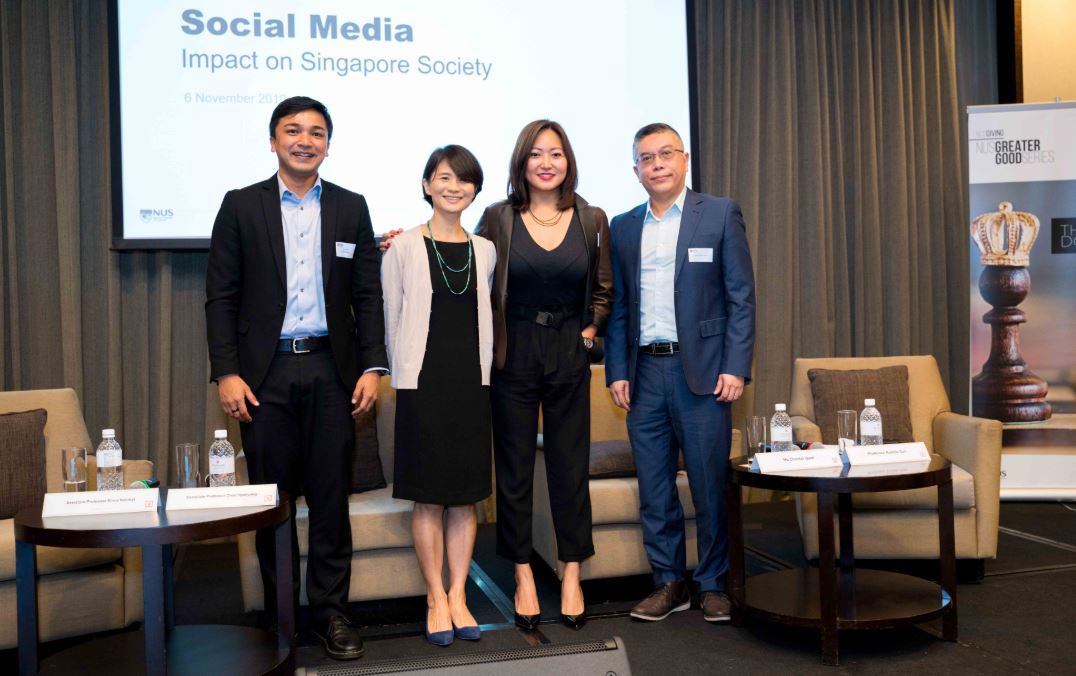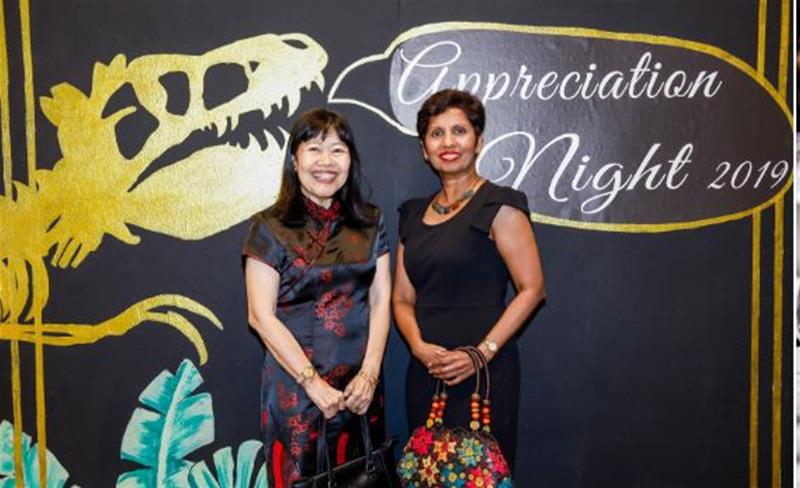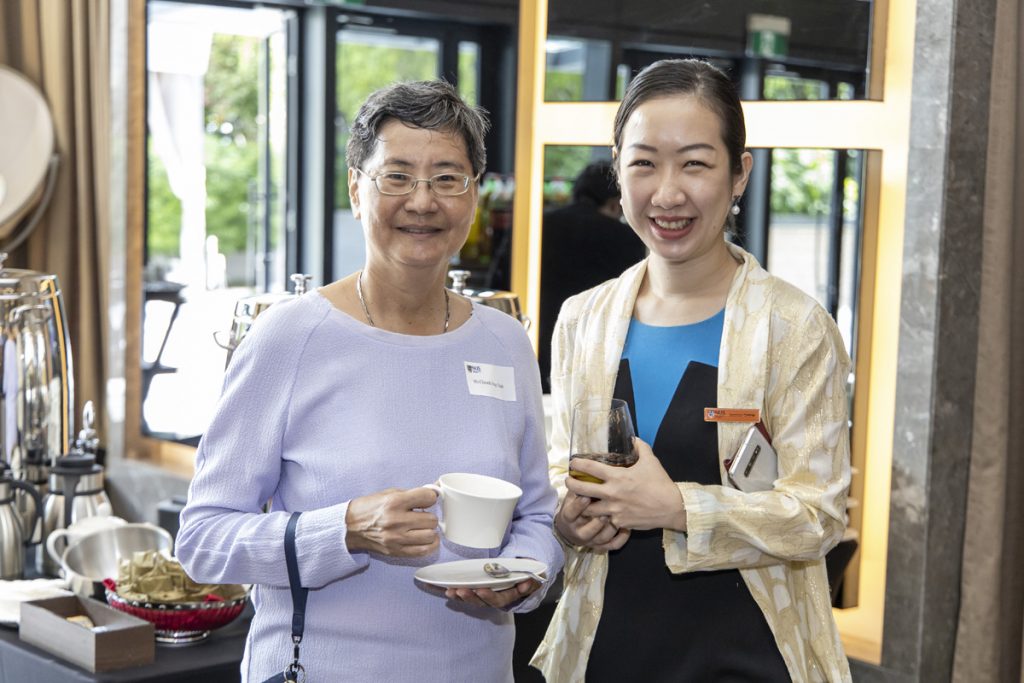NUS Greater Good Series – Age Well in an Evergreen City
Mar 28, 2019
A stellar panel of experts weigh in on ageing well at the NUS Greater Good Series - Age Well in an Evergreen City event.
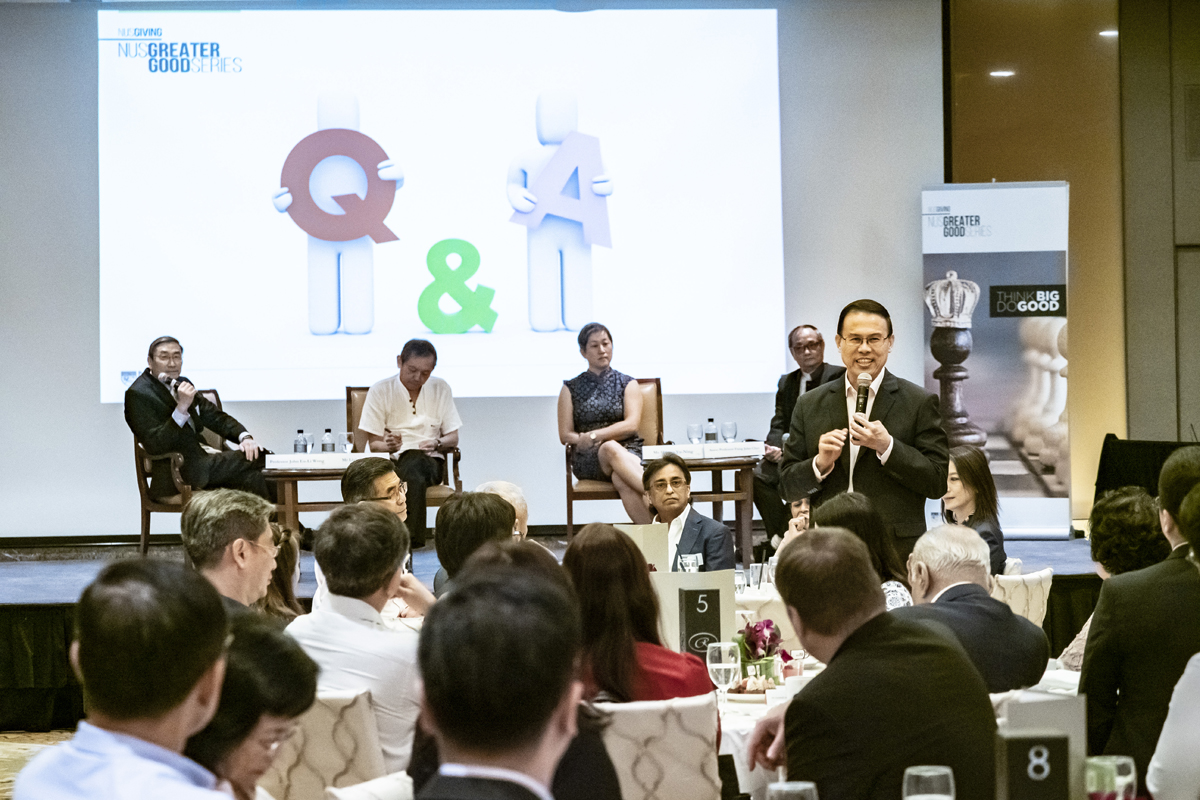
(from left) Prof John Eu-Li Wong, Mr Liak Teng Lit, Ms Hwang Yu-Ning and Assoc Prof Fung John Chye
(foreground) Dr Teo Ho Pin
“How do we care for a person from cradle to grave?”
Professor Lam Khee Poh, Dean of the National University of Singapore (NUS) School of Design & Environment (SDE) posed this question at the NUS Greater Good Series – Age Well in an Evergreen City event.
“Live well and you will age well,” said a stellar panel of experts, whose collective wisdom on graceful ageing will impact the future of Singapore’s largest demographic.
Some sobering statistics:
Singapore is the fastest ageing country in the world.
We have about 11 years left before the population above age 65 doubles.
Those born after the year 2000 have a projected life expectancy of 100.
Professor John Eu-Li Wong, Chief Executive of the National University Health System, and moderator of this event, painted a very stark picture.
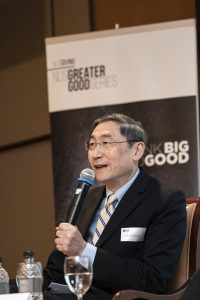
Prof John Eu-Li Wong
“While our current life expectancy is 85, we are only healthy till 75. For the next 10 years, we live with poor health. How do we address this? We are ranked very highly in the world in terms of quality of care, but how do we transform this into extending our healthspan? Singapore’s healthcare expenditure has also doubled in the last six years and this may not be sustainable,” he revealed.
So how do we live well?
According to Prof Wong, one new strategy is in reshaping the physical structure of Singapore.
Studies have shown that 60 per cent of premature death and disability is affected by social, behaviourial and environmental factors. Thirty percent is attributed to genetics which could be shaped by the environment as well.
Building the Solution, District by District
“What can we do when too many of us live too long?” questioned Mr Liak Teng Lit, Chairman of the National Environment Agency.
The answer: Specially designed neighbourhoods such as Kampung Admiralty, a first-of-its-kind development launched in 2017 to house at least 100 elderly residents. The estate is complete with not only a wide range of social, healthcare, communal, commercial, and retail facilities, it even has two-storey medical centre providing specialist outpatient care.
Ms Hwang Yu-Ning, the Deputy Chief Executive Officer of the Urban Redevelopment Authority (URA) shared that the qualities of good urban planning for age-friendly estates should not just be for the elderly.
“Accessibility and lovablility of a place are important to many. Not only must it be easy for people to move around well and comfortably, it must also be a place that people love, and can create social memories,” she explained. URA also strives to include greenery as much as possible to create a biophilic and therapeutic environment.
The challenge is to enhance existing neighbourhoods in a way that can provide the necessary support, whether it’s more home-based care services or specialised care, or making care facilities part of the community. Ideally, people should be able to ‘age-in-place’, meaning ageing comfortably in their own homes for as long as possible.
Associate Professor Fung John Chye, Director of the Centre for Ageing Research at SDE, highlighted planning projects which addressed issues facing the ageing population, including having accessibility to amenities within minutes, places for the elderly to work within the community itself, or mitigating urban heat with design.
The Software is as Important as the Hardware
According to the experts, putting the hardware in place is the easy part. The challenge is how we can create real communities within these neighbourhoods where residents will look after one another.
Recognising that being socially active is one vital key to good health, Dr Teo Ho Pin, Mayor of North West Community Development Council (CDC), a member of SDE’s School Advisory Committee, elaborated on the many healthy community activities conducted at the Bukit Panjang constituency, emphasising that pathways and facilities in the neighbourhoods are designed to encourage walking.
Ms Hwang also highlighted that while shaping the environment, URA is always mindful of promoting inclusivity and engagement amongst residents.
Preparing Ahead
Over the past five decades, SDE has nurtured many generations of professionals with over 17,000 alumni, transforming Singapore into one of the most liveable cities in the world.
With collaborative efforts across disciplines and the support of private philanthropy, Singapore should be well-prepared to face the demographic challenge ahead.
For further information on the NUS Greater Good Series, contact the Events team at dvoevents@nus.edu.sg.
For information on making a gift to NUS, email askdvo@nus.edu.sg.


